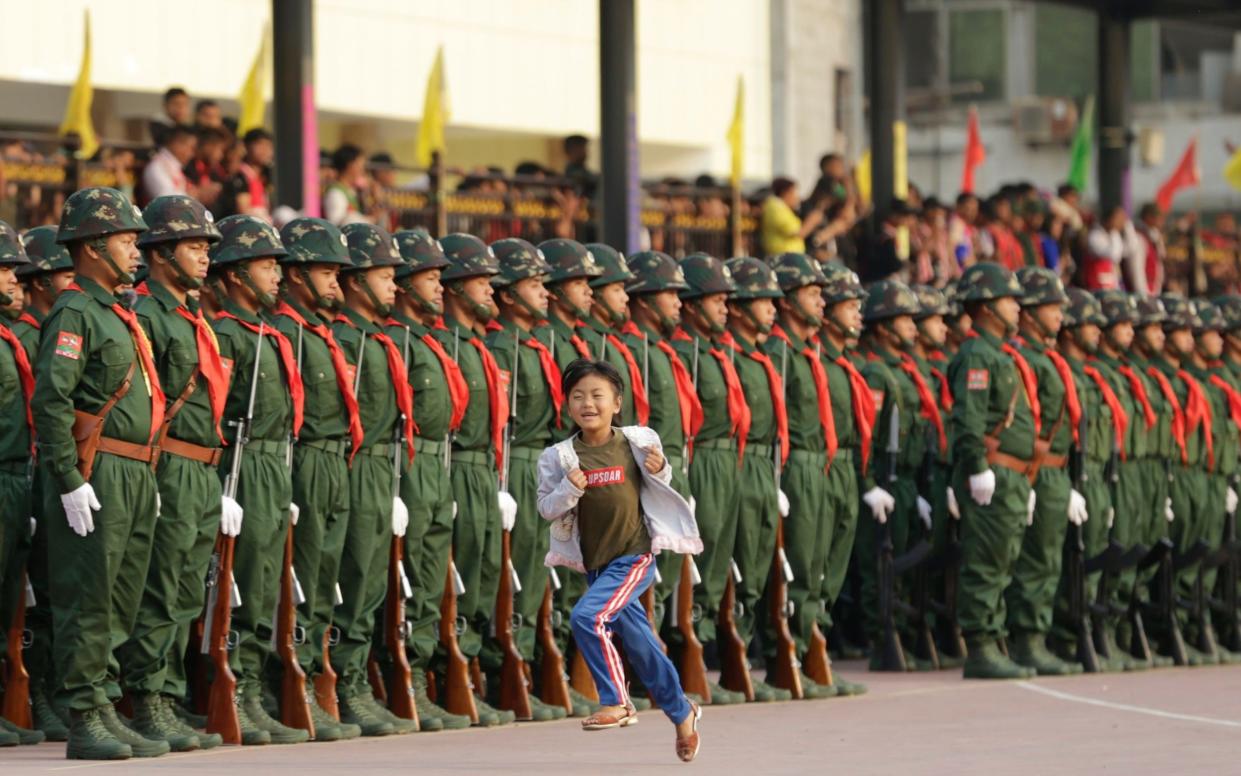Welcome to Narcotopia, the CIA-backed drug state standing up to China

Here’s a book that offers recreational drug users the rare treat of feeling a little virtuous. It’s the story of the Wa highlanders, who have lived in the border mountains between Myanmar and China for centuries. Unlike the Tibetans or the Uyghurs, they have not been bullied by a bigger nation into ceding their autonomy, as they are able to support a well-equipped army on the profits of drug smuggling.
Blessed with cold mountain-soil that’s hospitable to papaver somniferum (the opium poppy), over the last half-century the Wa have manufactured heroin on a massive scale. In 1989, they founded their own autonomous region, Wa State, within Myanmar; it now covers around 12,000 square miles, roughly the size of the Netherlands.
The American journalist Patrick Winn has written an account of how this “forbidden republic hiding in plain sight” has come to “sit at the core of a South-East Asian drug trade generating $60 billion each year in meth[amphetamine] alone”. He identifies the key figure behind Wa State’s prosperity as its treasurer-in-chief Wei Xuegang – “the most successful drug lord of the 21st century so far”.
Wei, a conspicuously nerdy youth among the warrior-like Wa, grew into a logistical genius who devised stratagems for shipping heroin to the eager American market. A renowned germophobe, he has now lived as a recluse for many years in a mansion garrisoned by a hundreds-strong “praetorian guard”. But he still controls Wa State’s drug operations, overseeing the recent pivot to the manufacturing of meth and speed pills.
And yet Wei’s cartel could never have come into existence without the help of an unlikely ally: the CIA. In the 1960s and 1970s, the CIA was prepared to help virtually anyone hostile to communism, and so helped to smooth the way for the Wa people and other mountain-dwellers to export drugs to Thailand – creating, in effect, “a 650-mile-long opium pipeline” – in exchange for intelligence on their Chinese neighbours. At times, Narcotopia reads like a satire from the mind of Joseph Heller, as agents of the US Drug Enforcement Agency, authorised by Nixon to lay elaborate and costly plans to smash the drugs trade, find themselves subjected to veiled threats from mystery men who turn out to be CIA agents trying to cultivate the cartels.

Winn tells this complex story with admirable clarity and a healthy dose of humour, and has drawn on a huge range of CIA and DEA documents, “some declassified, others acquired by creative means”. What makes his book sing, however, is his detailed recounting of the dogged heroism of Saw Lu, “the Wa nation’s answer to Ben Franklin”, who granted Winn a series of interviews shortly before being carried off by Covid. In the 1960s, Saw Lu was the Wa warlord who persuaded the various Wa tribes – who, back then, devoted most of their energies to cutting each other’s heads off – to unite against threatened Chinese expansionism.
Later on, noting how little the drug profits trickled down to the ordinary Wa people, Saw Lu plotted with DEA agents to secure a US aid programme in exchange for persuading his fellow Wa leaders to give up smuggling. He was twice arrested for alleged treachery and subjected to weeks of horrifically inventive torture. In a book not overflowing with acts of decency, his almost insanely stubborn altruism is welcome.
Winn is not blind to the faults of the Wa, but notes that, now that the CIA has moved on to making use of drug kingpins in Afghanistan, the rhetoric about Wa State that emerges from the US is bellicose and simplistic: the Wa are viewed as simply one more cartel. No doubt their drugs wreak much misery in the world, but it’s hard to read this book without cheering for the Wa as one of the rare indigenous peoples to have found a method of ensuring they can live undisturbed in their homeland.
Narcotopia is published by Icon at £20. To order your copy for £16.99 call 0844 871 1514 or visit books.telegraph.co.uk


